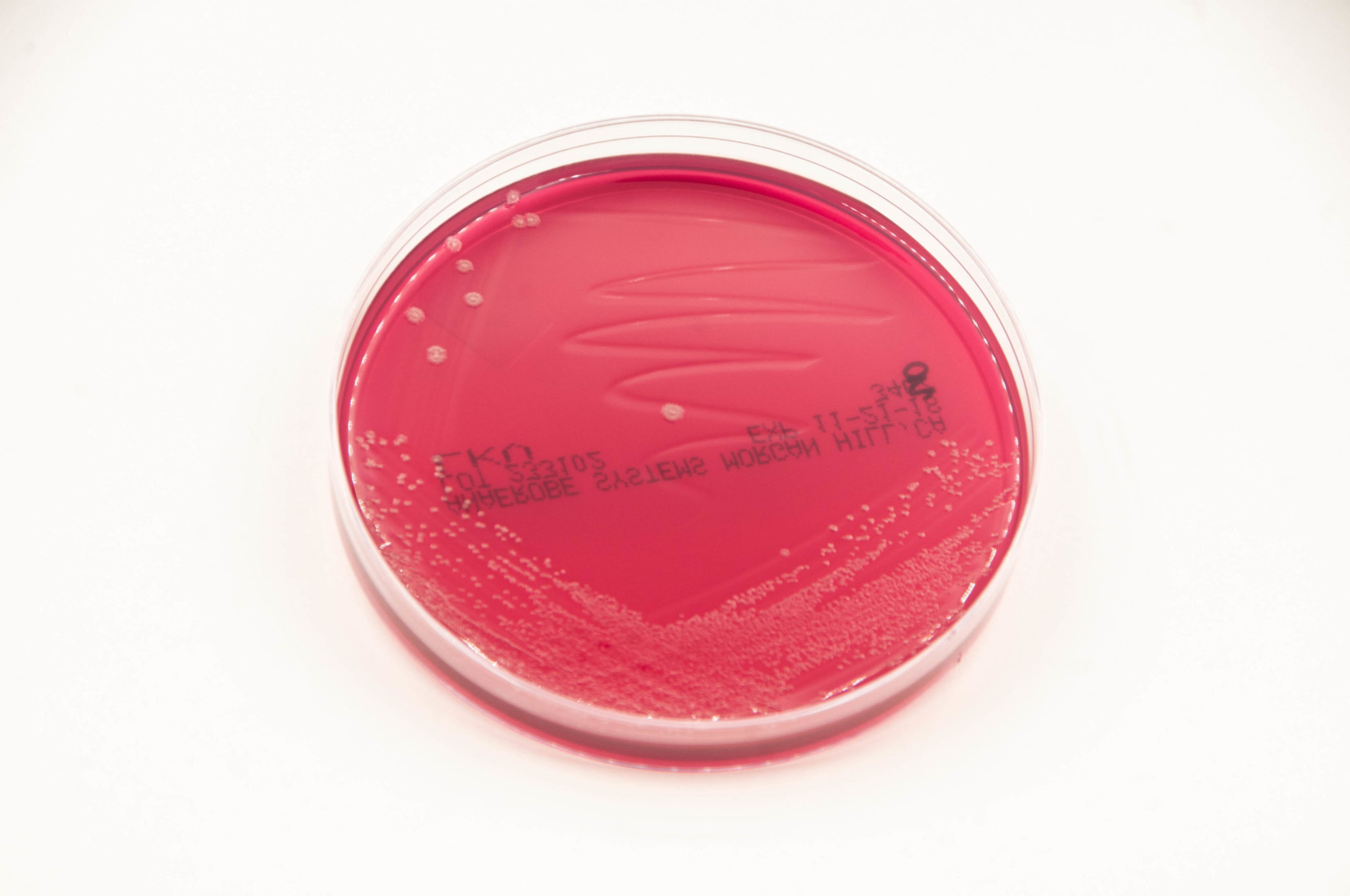Brucella Laked Blood Agar with Kanamycin and Vancomycin (LKV) is an enriched selective medium for the isolation and partial identification of obligately anaerobic gram-negative bacilli. Brucella Laked Blood Agar with Kanamycin and Vancomycin contains vancomycin to inhibit the growth of gram-positive microorganisms and kanamycin to inhibit the growth of gram-negative, facultatively-anaerobic bacilli. The sheep blood in the medium is laked and vitamin K1 and Hemin are added to facilitate the recovery and pigment production of Prevotella melaninogenica. This medium is prepared, stored and dispensed under oxygen-free conditions to prevent the formation of oxidized products prior to use.
Laked Brucella Blood Agar w/ Kanamycin and Vancomycin – LKV
| Catalog # |
Description |
Qty |
Price |
| AS-112 | LKV mono plate | 1 plate |
$2.88 |
| AS-142 | LKV 4 pk | 4 plates |
$10.12 |
Product Description & Summary
LKV agar contains casein, soy peptone, meat peptone, yeast extract, and dextrose as its nutritive base. The selective agents include kanamycin and vancomycin to prevent the growth of most obligate gram-negative and gram-positive anaerobic bacteria, along with most facultative anaerobic bacteria. Laked sheep blood and vitamin K1 are added to facilitate the recovery, and pigment production, of Prevotella melaninogenica and Porphyromonas spp. This media is prepared, dispensed, and packaged under oxygen-free conditions to prevent the formation of oxidized products prior to use.
Interpretation of Results & Limitations
If used properly, LKV agar will support good growth of some obligately anaerobic gram-negative bacteria (e.g. Prevotella melaningenica and Bacteroides fragilis) and inhibit the growth of facultatively anaerobic bacteria (e.g. Escherichia coli, Proteus mirabilis, and Staphylococcus aureus) and gram-positive obligate anaerobes (e.g. Clostridium perfringens and Peptostreptococcus anaerobius). LKV agar will support the pigmentation of Prevotella and Porphyromonas species.
LKV agar will not provide complete information for identification of bacterial isolates. Additional test procedures and media are required for complete identification. Some organisms that would normally grow on LKV medium may be inhibited. It is recommended that a non-selective medium, such as Brucella Blood Agar (BRU, catalog #: AS-111) also be inoculated from the same clinical specimen to assure recovery of all species present. Some strains of facultative organisms (which should be inhibited) may grow on LKV. A test for aerotolerance should be performed to confirm that each colony type is an obligate anaerobe. Consult reference materials for additional information.
Quality Control
The following organisms are routinely used for quality control performance testing at Anaerobe Systems.
| Organism Tested | ATCC # | Results | Time | Special Reaction |
| Bacteroides fragilis | 25285 | Growth | 24 hrs | |
| Prevotella melaninogenica | 25845 | Growth | 24 hrs | Pigmentt |
| Fusobacterium necrophorum | 25286 | Variable | ||
| Fusobacterium nucleatum | 25586 | Variable | ||
| Clostridium perfringens | 13124 | No Growth | ||
| Peptostreptococcus anaerobius | 27337 | No Growth | ||
| Staphylococcus aureus or Enterococcus faecalis | 25923 29212 | Inhibited to No Growth | ||
| Escherichia coli | 25922 | Inhibited to No Growth | ||
| Proteus mirabilis | 12453 | Inhibited to No Growth | ||
| Propionibacterium acnes or Clostridium difficile | 6919 9689 | No Growth |
t Pigment production may require more than 48 hours incubation.
Product Storage & Shelf Life
Storage: Upon receipt, store at room temperature in original package until used. Avoid overheating or freezing. Do not use media if there are signs of deterioration (shrinking, cracking, or discoloration due to oxidation of media) or contamination. The expiration date applies to the product in its original packaging and stored as directed. Do not use product past the expiration date shown on the label.
Shelf Life: 90 days from date of manufacture.



